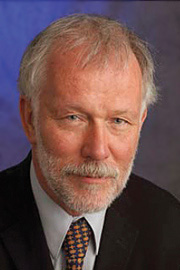Please note that this event has been CANCELLED. Keep checking back for updates regarding future events! Any inquiries about the cancelled event can be directed to info [at] wici.ca
Dr. Sander van der Leeuw, Professor, School of Human Evolution and Social Change, Director of the Complex Adaptive System Initiative at Arizona State University
Speaker Biography:
An archaeologist and historian by training, after teaching appointments at Leyden, Amsterdam, Cambridge (UK) and Paris (Panthéon-Sorbonne) he presently holds the Chair of Anthropology at Arizona State University in the USA. He is an External Faculty Member of the Santa Fe Institute, a Correspondent of the Royal Dutch Academy of Arts and Sciences, and a Member of the Institut Universitaire de France. His research interests have been in archaeological theory, reconstruction of ancient ceramic technologies, regional archaeology, (ancient and modern) man-land relationships, GIS and modelling, and Complex Systems Theory. He did archaeological fieldwork in Syria, Holland and France, and conducted ethno-archaeological studies in the Near East, the Philippines and Mexico. He has held visiting positions at the the University of Michigan, the University of Reading (UK), Australian National University, the University of Massachussetts at Amherst, and the Arizona State University, as well as at the Santa Fe Institute, and has lectured in many parts of the world.
Since 1992, he has been involved in a series of research projects financed by the European Union in the area of socio-natural interactions and environmental problems. Among these projects are ARCHAEOMEDES I (1992-1994) and II (1996-1999), concerned with understanding and modelling the natural and anthropogenic causes of desertification, land degradation and land abandonment and their spatial manifestations, and “Environmental Perception and Policy Making” (1994-1996), all of which he coordinated. In the case of the ARCHAEOMEDES Projects, up to 65 researchers from 11 European institutions were involved, which included disciplines from Physics, Mathematics and Computing, via Geology, Hydrology and the Life Sciences to Sociology, Social Anthropology, History and Archaeology. The fieldwork spanned all the countries along the northern Mediterranean rim. Moreover, he has been co-coordinating the Concerted Action “Environmental Communication” (1998-2000) and has been involved as expert in a number of EU research activities related to, notably, environmental matters (and in particular desertification, land degradation and land abandonment) at the French and European level. As a result, the EU has just funded his attempt to create a Europe-wide network of Long Term Socio-Environmental Research sites (2002-2004).
Another research interest is in the History of Archaeology, where he currently co-ordinates (with A. Schnapp) another EU-financed programme on the “Archives of European Archaeology” and the way they have selectively been used in the creation of national and regional identities. IN (1999-2001), he is directing a project in the framework of the program “Politiques Publiques et Paysages” of the French Ministry of the Environment on the relationship between regional identity, history and the landscape in Eastern France. In July 2001, he was appointed “Rapporteur-Général” of the French “Conseil national de Coordination des Sciences de l’Homme et de la Société”. This was followed by an appointment as Deputy Director for Social Sciences at the CNRS (2002-2003).
Access his full Curriculum Vitae here.
Read his faculty profile here.


